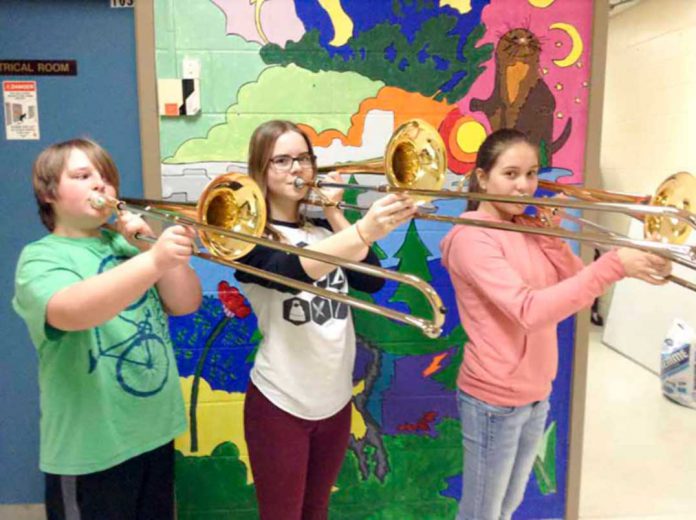TORONTO—The provincial government has released an update on its efforts to end the cycle of violence against indigenous women and girls ‘Walking Together: Ontario’s Long-Term Strategy to End Violence Against Indigenous Women.’
Released a year ago, the strategy focusses on raising awareness of and preventing violence against indigenous women by providing more effective and culturally appropriate programs and services, improving socio-economic conditions that support healing and keeping communities safe.
The program is a provincial response in recognition that indigenous women in Ontario are three times more likely to experience violence than other women and that as a consequence of intergenerational trauma, indigenous children and youth are overrepresented in child protection services.
“Incredible progress was made over the past year in collaboration with indigenous partners and especially the frontline workers,” said David Zimmer, minister of Indigenous Relations and Reconciliation in a release highlighting the update. “To end the cycle of violence once and for all, we must all continue to work together to create programs that meet the unique cultural needs of indigenous women and their families.”
“A year after launching the Walking Together strategy, we are continuing to make important progress,” said Indira Naidoo-Harris, minister of the Status of Women. “We are addressing human trafficking and helping survivors access culturally appropriate supports to rebuild their lives and heal. Through the program Kizhaay Anishinaabe Niin: I Am a Kind Man, we are empowering men and youth to help end violence against indigenous women and girls across Ontario.”
“I have heard from First Nations, Métis, Inuit and urban indigenous communities across the province about how excited they are about the Family Well-Being program,” said Michael Coteau, minister of Children and Youth Services. “Great progress has been made in the creation of safe spaces, the development of community-based programming and the strengthening of culturally-based resources and teaching delivered by Family Well-Being program workers. I’m also pleased to report that the community-driven design process has been a real example of reconciliation and partnership. I am committed to this program’s ongoing success as a vital step in supporting community healing and Indigenous children, youth and families to thrive.”
“I am pleased that our government, working with indigenous partners, is making progress on implementing our strategy to end violence against indigenous women,” said Helena Jaczek, minister of Community and Social Services. “In support of this work, I recently announced that the Ontario Native Women’s Association has been chosen to deliver our Indigenous Anti-Human Trafficking Liaisons initiative, part of Ontario’s Strategy to End Human Trafficking, to ensure we have the right supports and services in place to help women and their children heal and rebuild their lives.”
“Walking Together has already begun to make a difference in our communities,” said Sylvia Maracle, executive director, Ontario Federation of Indigenous Friendship Centres. “More than 300 community groups have the support and resources needed to begin to end the violence from a community-driven view of healthy relationships. Indigenous people—children, youth, men and women all over Ontario are getting help, accessing alternative supports and looking to our own culturally-based healing approaches to move forward.”
“Ontario Native Women’s Association (ONWA) acknowledges the one-year anniversary of Walking Together and is encouraged by the work being done, yet believes this is only the beginning,” said Cora-Lee McGuire-Cyrette, executive director of the Ontario Native Women’s Association. “ONWA looks forward to continued partnership with Ontario and believes the leadership of Indigenous women is crucial to the success of the Strategy and the healing of communities. Only in Walking Together with our women will we see violence come to an end.”
“The Métis Nation of Ontario is encouraged that Walking Together: Ontario’s Long-Term Strategy to End Violence Against Indigenous Women has translated into increased access to support and services in Métis communities across the province through our culturally grounded Métis Family Well-Being program,” said Margaret Froh, president of the Métis Nation of Ontario. “The MNO will continue to work closely with our indigenous partners and the provincial government to address the roots causes of violence against indigenous women.”
According to the update, more indigenous women, children, youth and families are getting the support they need in their communities. Some of the key accomplishments include: providing more than 200 indigenous communities with supports and services through the Family Well-Being program, which includes hiring and training more front-line service workers, developing community-based programming and creating safe spaces; expanding ‘Kizhaay Anishinaabe Niin: I Am a Kind Man,’ from five to 26 sites across Ontario to support indigenous men through healing and violence prevention programming; introducing the Anti-Human Trafficking Act, which, if passed, would enable individuals to apply for restraining orders against human traffickers and make it easier for survivors to get compensation from those who trafficked them; and launching the Indigenous Anti-Human Trafficking Liaisons program with partners to support indigenous-led approaches to end human trafficking.
The update noted that the province will continue to work with indigenous partners to make further progress in its strategy to end violence against Indigenous women and girls, which the update points out is one of many steps on Ontario’s journey of healing and reconciliation with indigenous peoples. It reflects the government’s commitment to work with Indigenous partners, creating a better future for everyone in the province.





